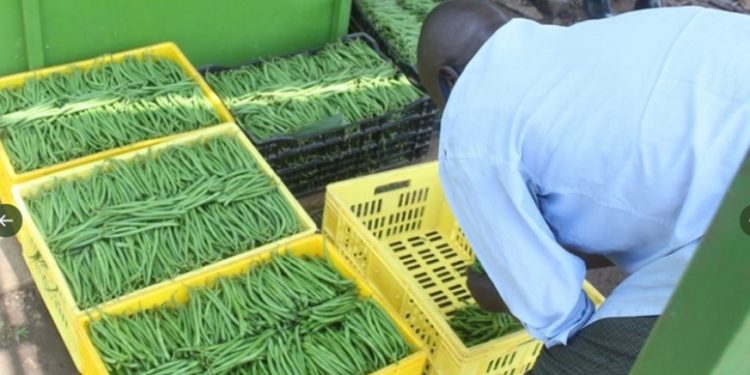In Africa, and in Rwanda, a significant portion of food loss occurs in early stages of the food value chain, mainly due to financial, managerial and technical constraints in harvesting and handling techniques as well as storage and cooling facilities.
The following are ten post-harvest handling technologies to be used by 63 farming cooperatives to reduce post-harvest losses and increase their annual sales by Rwf1.1 billion in the districts of Bugesera, Gatsibo, Karongi, Kayonza, Ngoma, Ngororero, Nyabihu, Nyamagabe, Nyamasheke, and Rutsiro.
Tarpaulins
Tarpaulin is a large sheet of strong, flexible, water-resistant or waterproof material. Tarpaulins will come in handy especially in drying and sorting of cereals. They prevent contact between crops and soil preventing source of microorganisms.
Mesh net bags
These are bags used to package onions, garlic, cabbages, and potatoes. The bag’s design facilitates crops inside to be properly aerated. Net mesh bags are used to ensure proper storage and shelf life of potato and horticulture crops.
Pallets
A pallet is a flat wooden or metal platform on which goods are stored. They are used inside the warehouse or stores to prevent air exchange between crops in bags and soil. Thus, they prevent the increase of soil moisture accumulation especially for maize production.
Weighing Scale
Weighing scale is used to accurately determine the weight of produce especially maize, beans, potatoes, and some horticultural products. Most of the farmers do not own accurate weighing scale and they lose a big quantity of harvest. At least 44 cooperatives in 10 districts requested 59 weighing scales that are accurate.
Crates
Crates are mostly used to transport fruits and vegetables and they are very crucial for reducing damage through proper aeration and storage. They are used especially during transportation of horticulture.
Moisture meter
Moisture meter is used to measure the moisture content of grains before storage. It shows farmers whether the grains once are stored will be safe from potential aflatoxin contamination.
The frequent use of moisture meters is a starting point for farmer/ cooperatives decisions of whether to continue drying or store as well as whether to sell at a given price as a function of moisture content.
Plastic silo
Plastic silos are used for storing grains safely and extending quality during the storage period.
The majority of cooperatives are requesting plastic silos produce maize and Irish potatoes.
PICS bags
PICS bags are used for storing grains. They are the hermetic storage option and they are useful in preventing aflatoxin. At least 31 cooperatives requested 4,247 PIC bags from all ten districts.
Hand shellers
Hand shellers are crucial in the quality of small quantities of grains during the shelling process. If grains are broken, they are susceptible to contamination.
Motorized shelling machine
Motorized shellers are very crucial in maintaining the quality of large quantities of grains to avoid contamination.
According to Claudine Mukeshimana, the Vice President of KOPEYIKARE Cooperative with 68 members that grow tamarillo ( tree tomatoes) in Nyabihu District they were losing between 20 per cent and 30 per cent due to lack of proper transportation and storage equipment.
Laurence Mukamana, the Deputy Chief of Party at Hinga Weze-USAID funded project, said that at least Rwf162 million post-harvest technologies are set to be granted to farmers.
The equipment will help 63 cooperatives to increase their production thus increasing the annual sales by Rwf1.1 billion.
“This is to promote the availability, accessibility, and use of appropriate post-harvest handling equipment and technologies by smallholder farmers’ cooperatives to reduce post-harvest losses and food safety hazards. If a farmer loses between 10 percent and 30 percent of their harvest it is a big loss,” she said.
She said that farmers were losing such percentage mainly for horticulture, maize, and Irish potatoes.
Post-harvest handling technologies is part of a $32.6 million project to increase smallholder farmers’ income, improve the nutritional status of women and children and increase the resilience of agriculture and food systems to the changing climate.
“It includes reduction of post-harvesting losses by encouraging and creating opportunities for farmers to adopt properly post-handling practices,” she said.










